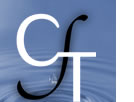 |
||||||||||
The Teaching Exchange: Tips from CFT Fellows
This article was originally published in the Fall 1998 issue of the CFT's newsletter, Teaching Forum.
"Learn students' names. For the first week of class, whenever a student raises his or her hand to ask or answer a question, I ask for the student's name. I also give weekly quizzes in my classes, and, as I hand back the quizzes, I say the students' names.With these techniques, I'm able to learn the names of a class of 50 students within the first two weeks of class."
-- Melinda Kane , Master Teaching Fellow for the Social Sciences
"Have you ever asked your class a question, only to be met with the deafening roar of absolute silence? It can be intimidating. But this silence serves an important function, and you shouldn't be too hasty to give the answer away. Give students some time to explore their own thoughts before answering. Valuable learning occurs as students formulate their arguments. If you get in the habit of answering your own questions, students will stop trying to answer: they know you will spoon-feed them the "right" answer if they wait you out. Demanding student response encourages more independent thinking. Finally, the silence is probably shorter than you think. Before the silence grows too long, you will notice your students becoming restless: there is peer pressure for someone to come up with an answer!"
-- John King , Master Teaching Fellow for Mathematical Problem Solving
"On the first day of class, give students index cards, and have them answer some questions about themselves: name, major, hometown, previous related courses, expected grade, predicted final record of this year's football team, favorite local place to eat, worst food at Rand, etc. I've found that a mix of questions asking pertinent and "irrelevant" information keeps the exercise fun and gives you material to use later on.When you're familiar with your students, you're are no longer "just some TA" but someone who knows them, and this often seems to instill some accountability in students. Further, it allows you to get a more realistic view of where your students have problems when they feel comfortable with you."
-- Todd Jackson , Master Teaching Fellow for the Lab Sciences
"Allow your students some input into your grading scale. Individual weighting of class discussions, quizzes, tests, and papers, can often be adjusted by 5 to 10 percent either way to accommodate student preferences without compromising instructor grading objectives. For instance, you can hold a class discussion to determine whether the midterm will count for 20 percent or 25 percent of the semester average. Giving your students a voice in how their grades are weighted gives them greater control over allocation of study time and serves to reduce grade complaints."
-- Marietta Del Favero, Master Teaching Fellow for Peabody
"Some students, particularly those from other cultures, may be uncomfortable asking questions during lecture, participating in discussion, calling the instructor by his/her first name, attending office hours, or addressing the instructor at all. The student's apprehensions may lead the instructor to falsely conclude that (a) he/she is doing a fantastic job communicating, or (b) the students are bored or already understand the material. Use appropriate assessment techniques periodically to "take the pulse" of the class so that they are giving you feedback on your teaching as much as you are giving them feedback on their work.Work to overcome student apprehensions, but realize that such changes (particularly cultural shifts) rarely occur overnight."
-- Bill Hamilton, Master Teaching Fellow for Engineering
"Silent times are a good opportunity for you to ask some relevant questions of your own; for instance, have everyone take out a sheet of paper and write down the one point from today's class that was most confusing to them and turn those sheets in anonymously. By assessing situations like this immediately, you can better facilitate your students' learning."
-- Robby Sanders , Master Teaching Fellow for Engineering
HOME | ABOUT CFT | PROGRAMS | SERVICES | RESOURCES
Center for Teaching |
General Questions? Web Site Questions? Copyright ©2009 |
